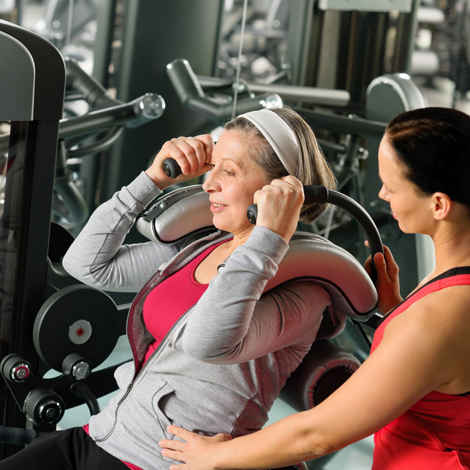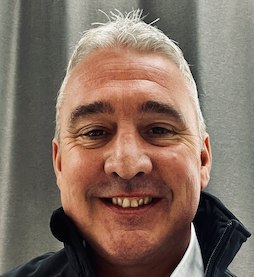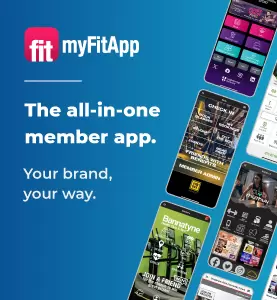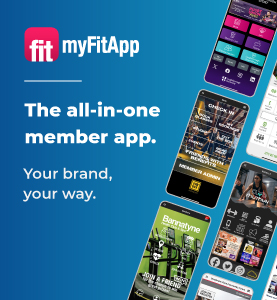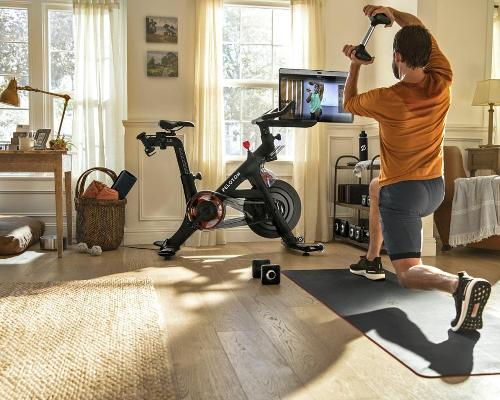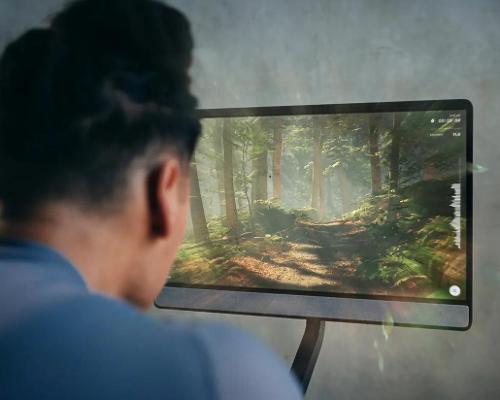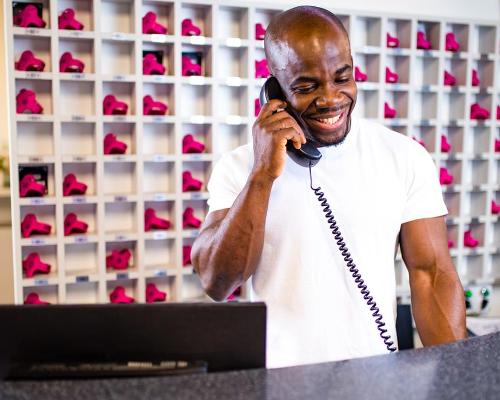At some point in life, most people change something, whether that’s career, relationships or lifestyle habits, for example. The determining factors for successfully carrying out that change are likely to include:
* Their motivation and readiness – how much they want it
* Their perception of the difficulty – if they think they can handle the change
* Their resources and energy – emotional, mental, physical
* The available help and the extent to which this assistance is person-centred
Health clubs and personal trainers are often consulted by people who want help and support in making lifestyle changes to improve their health and fitness. But how helpful is the support generally provided by clubs, and does it respect the barriers people face?
Barriers
When the desire to change arises, an individual will weigh up the benefits and sacrifices. Their inner processing may include: ‘Why should I?’, ‘How much do I want this?’, ‘What’s in this for me?’ Feelings of fear or excitement may also arise, and the extent to which these feelings are perceived as manageable will be a key motivational factor.
These intrinsic decision-making processes and feelings continue throughout the process of change. People will be continually reminding themselves of the extent to which they can, can’t, want or don’t want change. On the one hand they see benefits: ‘That would be wonderful’. On the other hand are fears: ‘Can I handle this?’ The power given to these feelings may determine their choice: to stay in their comfort zone or move forward.
Expert as expert
Health and fitness professionals have expertise in their field, and knowledge provides the know-how to get things achieved. This is of course helpful. However, if well-meaning advice is delivered as warnings – ‘find time to exercise or find time for illness’ – or in an expert-directed or controlled way – ‘do this, don’t do that’ – this may evoke resistance from your members. It may also trigger feelings of blame, shame and helplessness, which reinforce any negative beliefs the person holds about their worth: ‘I’m not good enough’, ‘no-one can help me’. The more ‘not OK’ the person feels, the greater will be their need to resist help and defend their self-concept and behaviours, lowering their motivation.
Experts who move conversation with the client too quickly towards the ‘how can I?’ rather than exploring the ‘why should I?’ are not actually being helpful. ‘How’ conversations place the focus on change; ‘why’ conversations place the focus on motivation. The expert’s enthusiasm (external motivation) may fire the person up in the short term, but this will often burn out quickly. What’s needed is conversation that will ignite and maintain the client’s own fire – their intrinsic motivation.
Person as expert
The person is always their own best expert. At some level, conscious or unconscious, they know why they choose certain behaviours. They live with their inner voice(s) that tell them why they can, can’t, should, shouldn’t act in a certain way. This inner dialogue concept is acknowledged in many psychological theoretical orientations, motivational interviewing, Gestalt, Transactional Analysis and so on.
If the aim is for positive change and self-care, these voices need to be heard, accepted and understood. Empathic listening from the helper supports this. When the person can openly discuss what stops them, and their reasons for wanting change, without feeling judged, they become more empowered. They start to learn to become more self-accepting and begin to understand themselves: their barriers, defences, emotions and motivators. With this acceptance and understanding, they can be their own ‘best friend’ and make their best decisions.
The helper’s role is to facilitate this motivational dialogue by coaxing and encouraging the person to speak. The helper listens with empathy, positive regard, acceptance and a curiosity to understand the person. They hold the space when internal discord, resistance and dissonance arise, without needing to ‘fix it’ or rescue the situation. Working in this way builds autonomy in the person being coached – it allows them the freedom to make their own decisions in their own time.
This type of helping relationship requires an attitude of trust and belief in the person being coached – something many ‘experts’ struggle with, especially when some behaviours they are witnessing are destructive to health. However, Carl Rogers, the father of person-centred working, believed a person only needed to experience these conditions once in a lifetime to build the resources they need.
The individual may fall, relapse and make mistakes, but when they are supported without criticism, judgement, berating or a need to fix things, they learn for themselves – all of which builds self-acceptance and strengthens the inner resources needed to maintain long-term motivation.
Skillful helping
Learning to help skillfully is a lifelong journey. It requires a desire to want to know and help, a desire to read between the lines of what clients say, an awareness and attention to their language, body language and an awareness of one’s own responses, gut feelings, sensations and so on.
The skills, knowledge and attitude needed to help in this way require study, experience and reflective practice. Some first steps include:
Learn to listen: Listen more than you speak.
* Helpful speaking involves using reflective statements to reflect back the client’s own words and summarise key aspects of their conversation.
* Unhelpful speaking includes giving opinions, passing judgements or sarcastic comments that humiliate, ridicule or shame. These interfere strongly with learning and growth.
Release control and build independence:
Do we really know what’s right for someone else? Facilitate participative working, give the person some control, encourage their independence and provide opportunities for them to self-assess, evaluate and build self-reliance. Open questions can help this process – eg ‘Why do you believe you’re thinking about that now?’ and ‘How important is that for you?’ Then listen and let them choose.
Every choice they make is an opportunity for them to learn something about themselves, building their autonomy and personal power.
Every choice someone else makes strengthens their reliance and dependence on others, reducing personal power. If the helper gets it wrong, they set the person up for failure and themselves up for blame.
A helpful attitude:
Strengthen your attitude for compassion and trust in people. Hold hope for the person, so they can hold this for themselves when they are ready.
Remember it is the person being coached, not you, who has experienced their own life and struggles. Get to know their world as they experience it and let go of the need to judge based on your own views. Help them see the positive things they do and the resources they have/are building, rather than focusing on what they are not doing. This will help the person see themselves less critically.
Self-awareness:
Be open to exploring and learning more about your own prejudices. We all make judgements. The more mindful and self-aware we become, the greater will be the potential for empathy for others – and ultimately, one’s own self. Many counsellors have supervision to help them explore their blocks that may form barriers to effective working.
Develop your knowledge: Keep learning.
There are numerous courses and books that explain psychological theories and behaviour change models. Be eclectic and learn about many approaches.
One step at a time
Learning to work in a person-centred way is about developing a helpful attitude. Accepting and respecting the person, their life journey, experiences, struggles, successes and failures without judgement has the potential to help them see themselves with less judgement.
When the person accepts all aspects of themselves they can listen, learn, self-challenge and choose. They can seek out choices that reflect their movement towards greater self-care; not all at once, but small steps.









